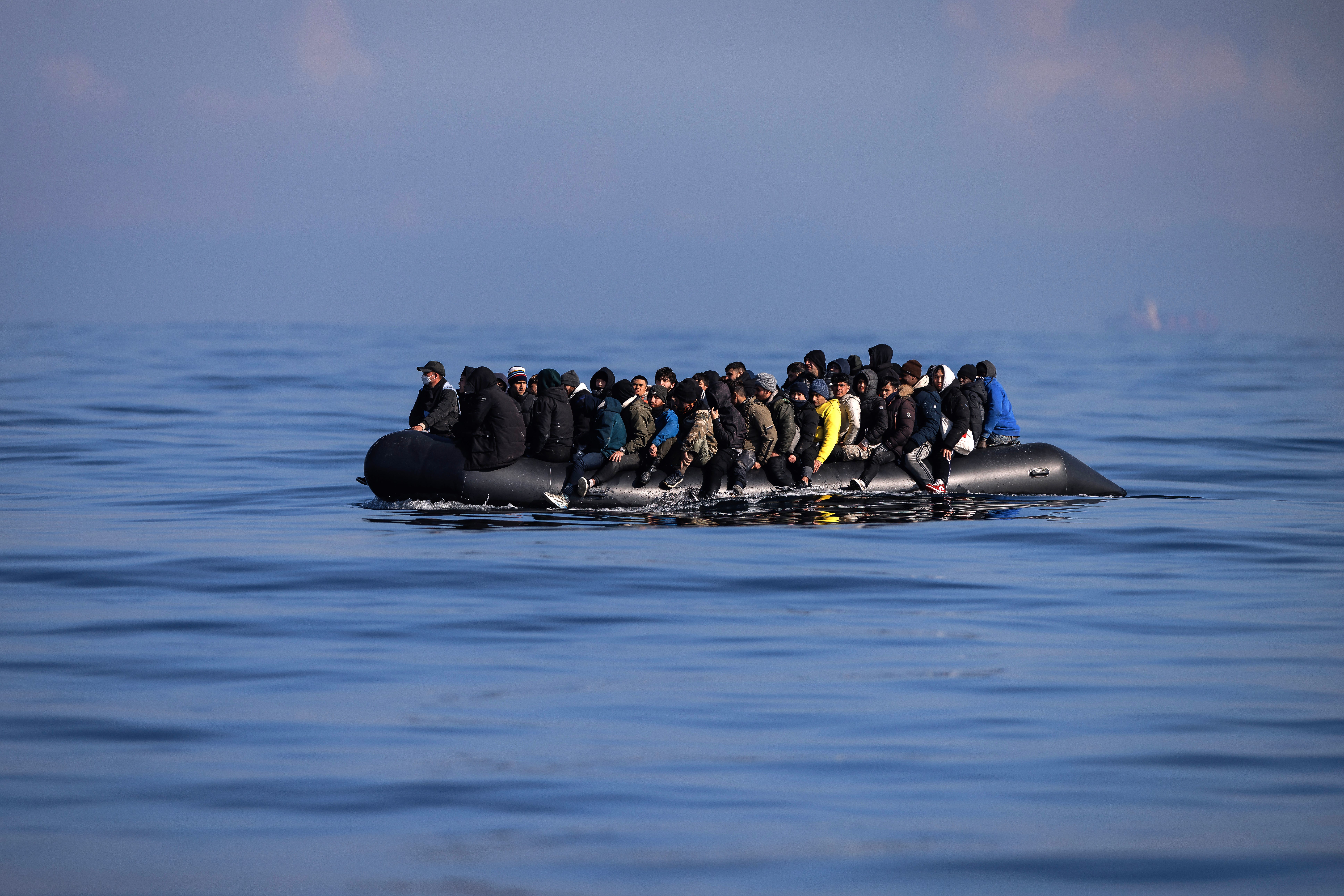I was trafficked and sold – here’s why the Rwanda plan is wrong
The government’s scheme to forcibly remove survivors of human trafficking to another country will make them feel like they’re being targeted all over again, writes Jane Lasonder – trust me, I should know


As a victim of child sexual exploitation – a form of modern slavery – I know the terror and fear that can be felt, the helplessness and despair. You are controlled completely by your trafficker and have no free will. I felt invisible in plain sight, and no one spoke up for me.
It took me a very long time to recover and I required a lot of support from the people I met and the community I managed to build in my life. My recovery was helped by the fact that I am British and therefore didn’t need to fear being removed from this country and having to start from scratch in a strange place where I didn’t want to be.
Arriving in the UK via an irregular route, for example on a small boat – as many potential victims of modern slavery and human trafficking are forced to do – doesn’t change those feelings one bit. In fact, I imagine that would make them worse. On arrival after such a traumatic and perilous journey, exhausted and terrified, many people go on to be exploited for labour, sex, or criminal activities.
The humane and moral thing to do would be to make sure people who get trapped in slavery can be given the support they urgently need. Yet instead of doing that, the government has remained hostile to survivors of modern slavery by trying to remove them from the country, including to Rwanda through the so-called Rwanda scheme. This is despite the Supreme Court ruling that Rwanda is not a safe country to send people to.
The truth is, removing victims of modern slavery to Rwanda feels similar to trafficking, because they’re being taken to another place against their will, where they will be more vulnerable to exploitation. Detaining and forcibly removing a survivor of human trafficking to another country will only add to that feeling of having no control over their life and being forced to do something against their will. In this way, they may feel as if they are being treated in exactly the same way as they were treated by their traffickers.
It doesn’t solve trafficking; it just creates more problems. And it is only placing this problem on someone else’s doorstep, as well as costing the UK a massive amount of money.
Sending victims of trafficking away to Rwanda or another country, without allowing them to speak, with no access to support or proper healthcare in place, will have a massive negative impact on their mental and physical health, and can even lead to suicide.
If removed to Rwanda, victims of modern slavery wouldn’t be sure of getting even that low level of support that they get here in the UK
I’ve spoken to survivors of trafficking, who were waiting to hear if they’d be allowed to stay in the UK or be sent away, and it was heartbreaking to hear their stories. Although formally in receipt of the support potential victims of trafficking are entitled to, the help they were getting was substandard and the wait for immigration decisions only added to their trauma.
One lady told me she was isolated by the Home Office in a hotel room with meals put outside her door – meals she couldn’t eat much of because of her allergies. She also had some untreated injuries and health problems. I get in a panic if I get a small infection in my finger, and I can visit a doctor to treat it – imagine having a more serious health problem and not knowing when, or even if, you will get proper help with it.
I also spoke to a young man who was given around £35 a week as part of his NRM support (National Referral Mechanism) and no other help beyond just a bare room with no mattress. He was traumatised and couldn’t sleep. He didn’t even have a coat, and it was winter. How is it OK that someone has to choose between a mattress, a coat and food? Only because the community came together and helped him was he able to eat and keep warm.
If removed to Rwanda, victims of modern slavery wouldn’t be sure of getting even that low level of support that they get here in the UK.
The Rwanda scheme also means that potential victims of slavery and trafficking might not be identified in the first place. People will be scared to come forward, knowing that their fate might not be that much different from the modern slavery trap they currently encounter.
That means fewer people will come forward and fewer traffickers will be caught and prosecuted, as confirmed by the evidence. Traffickers are basically being given the green light to traffic more people and get away with it. The government is acting inhumanely and immorally, and is showing no regard for the safety of vulnerable people.
The government has already given £250m to the Rwanda government to set up the scheme, and the scheme will cost UK taxpayers over half a billion.
So instead of spending huge amounts of money on sending people away, we should use it to solve the real problems related to human trafficking.
Firstly, this money could be used to improve the support currently given to survivors, and to make sure they feel safe to come forward. Secondly, we should be investing in protection, and in prosecutors to send traffickers to prisons. Supporting the victims will help with that because they’ll feel safer and more able to help the police in prosecuting the traffickers.
What values are we teaching our children? We have to show our children how to treat people with humanity and compassion, and that everyone deserves protection and support, instead of shifting the problem somewhere else.
Are we going to remain silent? Silence is a cowardly thing. Or are we going to use our voices and say “No”?
Our actions can change the narrative from ignoring the victims to prosecuting the traffickers instead, which in turn will lead to more victims being identified. It will make the UK safer and an example globally in the fight against slavery and trafficking.
Jane Lasonder is a member of the Lived Experience Advisory Panel at the Modern Slavery and Human Rights Policy and Evidence Centre
Join our commenting forum
Join thought-provoking conversations, follow other Independent readers and see their replies
Comments
Bookmark popover
Removed from bookmarks